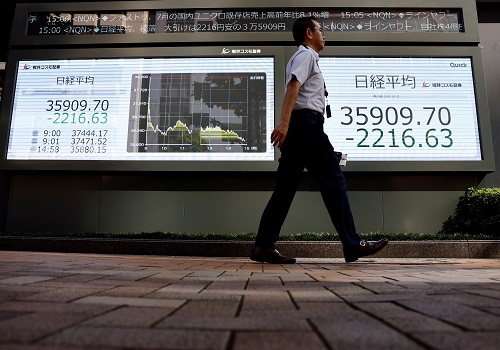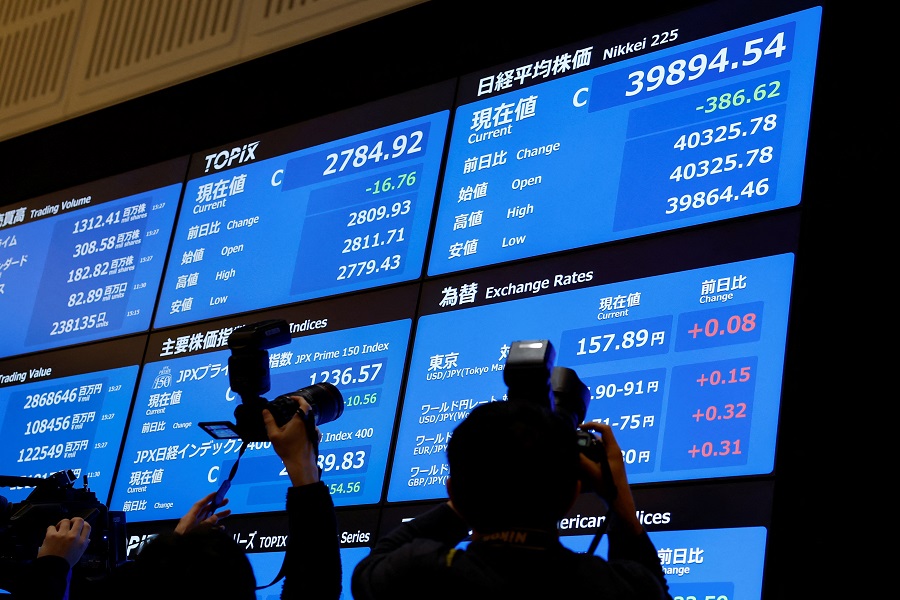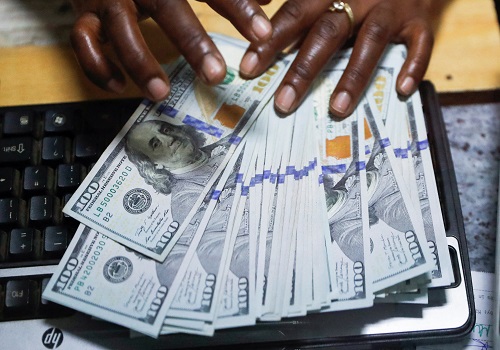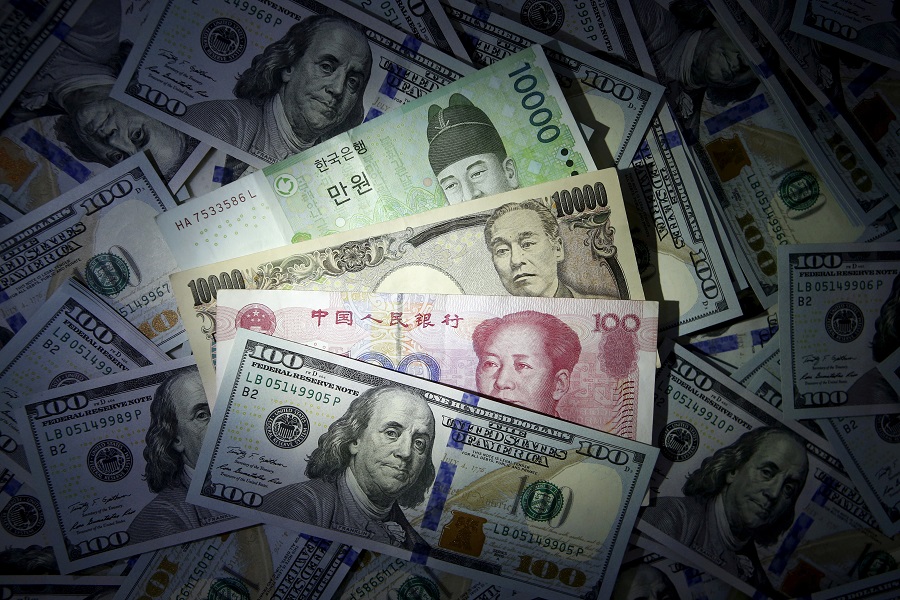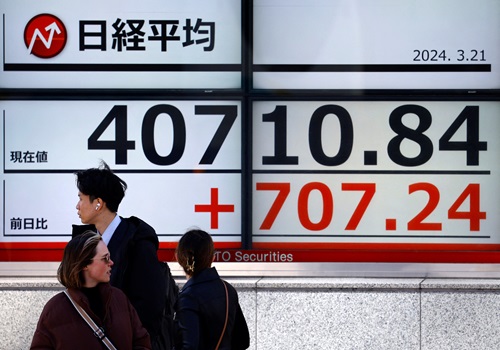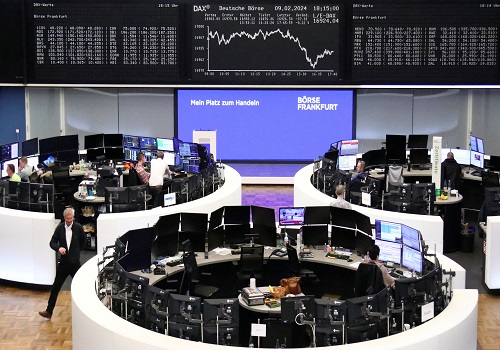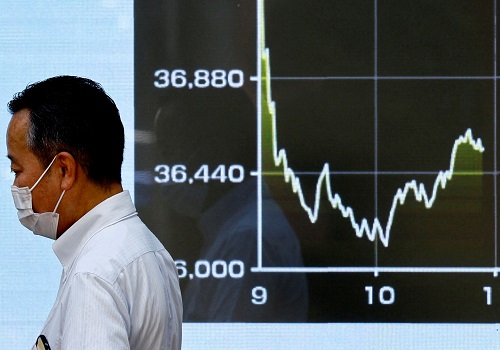Asia stocks struggle as China drags, rate cut bets dwindle
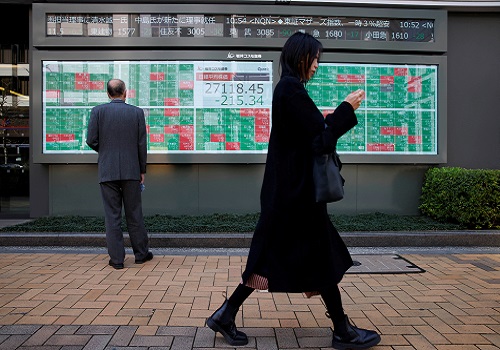
Asian shares were off to a tepid start on Thursday, weighed down by a murky economic outlook in China and expectations the global rate easing cycle may not come as early as some had initially thought.
U.S. Treasury yields edged higher while the dollar hovered near a one-month peak as investors pared their bets on a rate cut by the Federal Reserve beginning as early as March.
MSCI's broadest index of Asia-Pacific shares outside Japan rose 0.1%, though it was still languishing near Wednesday's two-month low of 490.45 points.
The index had tumbled more than 2% on Wednesday, its steepest one-day percentage fall in more than five months, led by a slump in Chinese stocks after a slew of economic data pointed to a shaky economic recovery in China.
"For Asia in particular, there are a few negative things that are impacting (markets)," said Khoon Goh, head of Asia research at ANZ.
"The paring back of rate cut expectations is definitely a factor... (but) for Asia, the bigger driver is the growth concerns around China.
"That continues to pose worries for investors."
China's economy grew 5.2% in 2023, slightly more than the official target, but the recovery was far shakier than many analysts and investors expected, with a deepening property crisis, mounting deflationary risks and tepid demand casting a pall over the outlook for this year.
China's blue-chip stock index bottomed at 3,204.6383 points, its lowest since 2019, while Hong Kong's Hang Seng Index touched an over 14-month low of 15,183.96.
"As bearish as the Hang Seng (Index) is, it is trying to find support around 15,300 after an extended move lower," said Matt Simpson, senior market analyst at City Index.
"I see no immediate reason to be a buyer of China's equities, but bears may want to warrant caution, especially as the index moves towards 15,000 and the 2022 low as they strike me as obvious support levels to trigger a shakeout."
Japan's Nikkei, meanwhile, remained a standout and rose 0.3%, hovering near Wednesday's 34-year peak as the market extends its bull run.
"Foreign investors have been net buyers so far year-to-date and anecdotally many international investors that we speak to continue to build more substantial Japanese equities positions in their portfolios," said Oliver Lee, client portfolio manager at Eastspring Investments.
In Australia, data on Thursday showed employment fell sharply in December after two months of surprisingly strong growth, while the jobless rate stayed at a 1-1/2 year high, a result that added to expectations interest rates have peaked.
That sent the Aussie falling in an initial knee-jerk reaction, though it later trimmed some of those losses and was last 0.05% higher at $0.6555.
The country's S&P/ASX 200 index was last 0.75% lower, after having slid to a one-month low earlier in the session, tracking a decline in global equities.
HIGHER FOR LONGER
In the broader market, the pullback in expectations that the global easing cycle, led by the Fed, could begin as early as March remained the dominant driver.
U.S. Treasury yields ticked up in response, with traders now pricing in a roughly 60% chance of a Fed cut in March, as compared to a near 70% chance a month ago, according to the CME FedWatch tool.
The benchmark 10-year Treasury yield was last at 4.0904%, not far from Wednesday's one-month high of 4.1290%, while the two-year yield last stood at 4.3333%. [US/]
That kept the greenback pinned near a one-month high against a basket of currencies, with the dollar index last at 103.25.
Data on Wednesday that showed a higher-than-expected increase in U.S. retail sales last month reinforced bets that U.S. rates would likely stay higher for longer.
"The paring back of expectations, particularly for the U.S., is understandable," said ANZ's Goh. "I think the market got a bit too carried away after the December FOMC meeting."
However, against the euro, the dollar's gains were capped, after European Central Bank (ECB) officials similarly pushed back against rate cut expectations in the euro zone.
ECB President Christine Lagarde said on Wednesday victory against inflation in the bloc had not yet been won, while Dutch central bank chief Klaas Knot said the same day that investors were getting ahead of themselves in pricing in cuts from the ECB.
The single currency was last 0.12% higher at $1.08985.
In Britain, a hotter-than-expected reading on inflation likewise dented market expectations for an early Bank of England rate cut, propping the pound, which was last 0.13% higher at $1.26920.
"Central bankers are still casting doubts on cutting rates with alacrity in 2024," said Thierry Wizman, global FX and interest rates strategist at Macquarie.
"We think that what's also really motivating central bankers' new caution is uncertainty around the possible new supply shocks out there."
In commodities, oil prices edged higher as OPEC forecast relatively strong growth in global oil demand over the next two years and a cold blast in the U.S. disrupted some oil production. [O/R]
U.S. crude rose 27 cents to $72.81 per barrel and Brent gained 14 cents to $78.02.
Spot gold gained 0.26% to $2,010.89 an ounce. [GOL/]

















